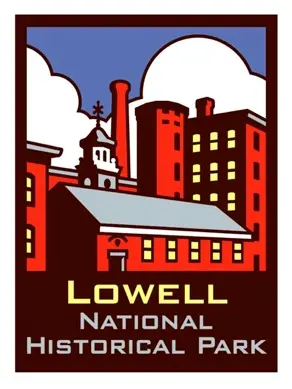Working Music
This activity can be done in conjunction with Yankees and Immigrants, Workers On The Line, Bale To Bolt, or other Tsongas Center educational programs.
Music is important to humans, and has a particular importance to humans and their work. There have long been songs about work and songs that aid in getting work done; sea chanties (maritime work songs) are one example and cadence or jodies (military marching tunes) are another example. In exploring the labor history of the United States, one finds music. Music was used in songs about and for work as well as a form of protest and as a way of joining people together. In the Labor Movement, songs were, and are, used to unite people and to influence thinking about work and the worker.
These songs were often set to popular tunes. An example of this is Solidarity Forever written by Ralph Chapin and sung to the tune of the Battle Hymn Of The Republic. Another example is In The Good Old Picket Line sung to the tune of In The Good Old Summer Time. Why would a songwriter use a popular tune for a labor or protest song? Why did labor organizers use music? Can you think of other ways music has been used to effect political change?
The following is a simple song with a strong message.
The singer was, most likely, a New England "mill girl." Mill girls were young women, usually between the ages of 14 to 35, from New England who worked in the textile mills.
What does the singer mean when she sings "I will not be a slave"? What do the words mean to you? How is the singer making a statement by using rhetoric to compare her situation to slavery? The new words for I Won't Be A Nun were written before the Civil War. Does knowing this change how you understand these words?
Using the first two stanzas of I Cannot Be A Slave as the verses and the last two stanzas ("But I cannot be a slave·") as the chorus, write two more verses to this song. Write one verse as a New England mill girl (or boy). Write the second verse as an immigrant mill worker. How would the two verses be similar or different? Why?
Now try your hand at writing new words to a popular song. Write lyrics that speak about work. How will what you write help shape how people think or feel about work?
MORE IDEAS!
Illustrate the verses you wrote for "I Will Not Be A Slave."
Examine the relationships between protest and music through research in a library and on the web. Share the results with your class or study group.
Solidarity Forever
(to the tune of Battle Hymn Of The Republic)
When the union's inspiration through the workers' blood shall run,
There can be no power greater anywhere beneath the sun;
Yet no force on earth is weaker than the feeble strength of one,
But the union makes us strong.
CHORUS:
Solidarity forever!
Solidarity forever!
Solidarity forever!
But the union makes us strong!
They have taken untold millions that they never toiled to earn,
But without our brain and muscle not a single wheel could turn.
We can break their haughty power, gain our freedom when we learn
That the union makes us strong.
CHORUS
In our hands is placed the power greater than their hoarded gold,
Greater than the might of armies magnified a hundred fold.
We can bring to birth a new world from the ashes of the old,
For the union makes us strong.
CHORUS
Sung to the tune of Battle Hymn of the Republic, words by Ralph Chapin
In The Good Old Picket Line
(to the tune of In The Good Old Summertime)
In the good old picket line,
In the good old picket line,
The workers are from ev'ry place, from nearly ev'ry clime.
The Greeks and Poles are out so strong and the Germans all the time,
But we want to see more Irish in the good old picket line.
Print Resources for Additional Information
- Alloy, Evelyn, 1976. Working Women's Music: The Songs and Struggles of Women in the Cotton Mills, Textile Plants and Needle Trades, Complete with music for Singing and Playing. Somerville, MA: The New England Free Press.
- Foner, Philip S., American Labor Songs of the Nineteenth Century. Chicago: University of Illinois Press.
- Greenway, John, American Folk Songs of Protest. Philadelphia: University of Pennsylvania Press.
- Lomax, Alan and Sidney Robertson Cowell, American Folk Songs and Folk Lore: A Regional Bibliography. New York.
- Lomax, John A. and Alan Lomax, 1994 American Ballads and Folksongs. New York: Dover Publications.
- Seeger, Pete and Bob Reiser, 1985 Carry it On! The Story of America's Working People in Song and Picture. New York: Simon and Schuster.
- 1991 Carry It On! : The Story Of America's Working People In Song And Picture. Bethlehem, Pa.: A Sing Out Publication


